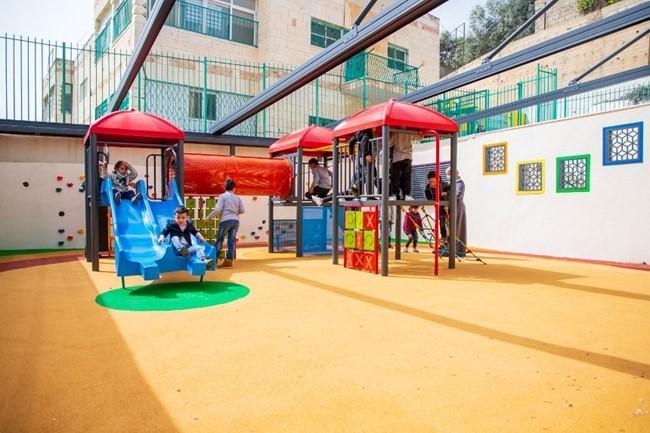Resilience in Schools of East Jerusalem project (RiSE)
Victoria DEOM | 18/11/2024Final evaluation on the Resilience in Schools of East Jerusalem (RISE) project. It was implemented in East Jerusalem, Palestine, from June 1, 2019, to July 31, 2024. The intervention was designed to strengthen the resilience of the Palestinian community by addressing the challenging educational context, which is characterized by a chronic shortage of classrooms, inadequate infrastructure, and political constraints. Jointly funded by the European Union and Belgium (DGD), the project had a total budget of €12,013,168. The central outcome aimed to increase access to education by fostering a healthy, safe, child, and environmentally friendly atmosphere involving educational communities and end users. This objective was to be achieved through three outputs: improving school infrastructure, equipping students with life skills and ownership through the provision of "Fab-Labs", and involving the community in creating five to six semi-public external spaces in or around upgraded schools.
This final evaluation was commissioned by Enabel to serve the dual and mutually reinforcing objectives of accountability and learning, specifically by assessing the project's progress and generating insights for future programming. While the overall project spanned five years, the analysis concentrated primarily on the period from the first quarter of 2022 to the second quarter of 2024. The evaluation applied the full range of OECD DAC criteria. The scope of the analysis specifically focused on Results 2 (Fab Labs and associated components like STEAM) and 3 (the public spaces component). Cross-cutting themes integrated into the evaluation included the assessment of gender issues as well as the integration of digitalization and environmental awareness initiatives across the project.

